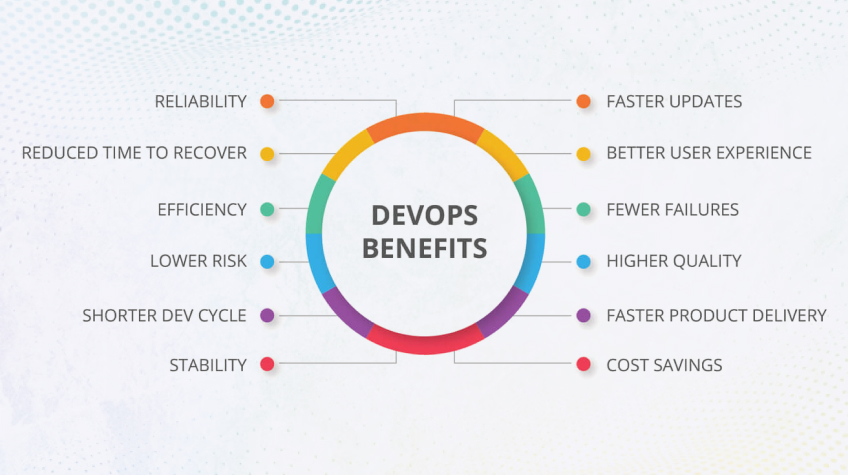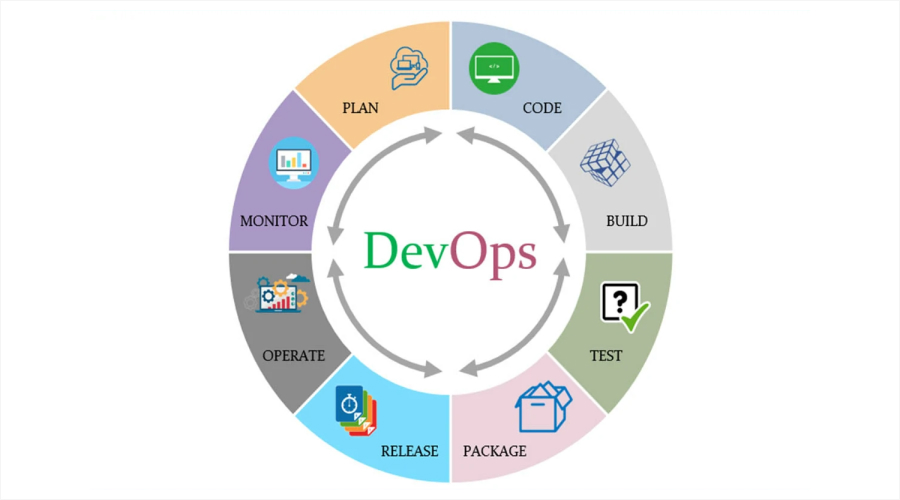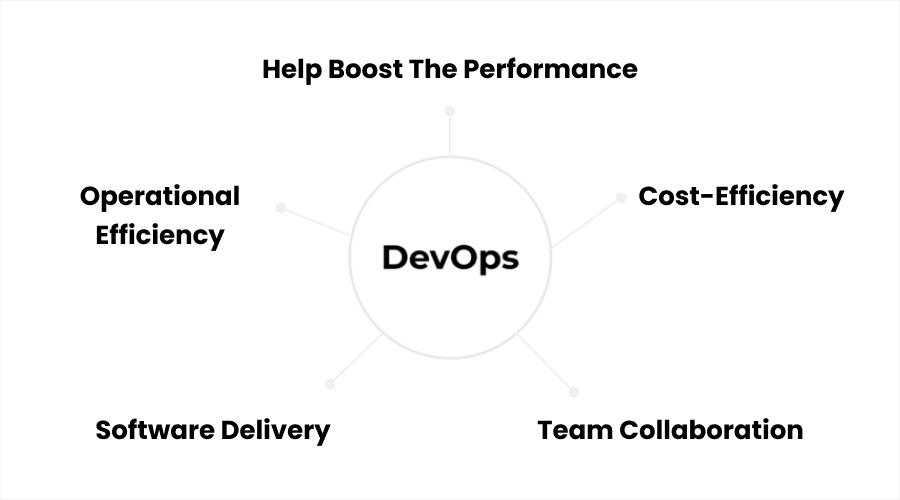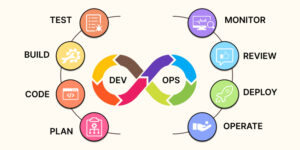
Software solutions are in the mainstream in this era. There are applications or tools for almost everything, from professional to personal needs. In such a situation, it becomes the primary responsibility of the companies to provide effective software solutions that help individuals enhance performance. This is where scalable DevOps solutions come into play. It not only helps organizations attain a competitive advantage but also helps them improve their bottom lines. Presumably, you might have some idea about scalable DevOps solutions.
However, having a detailed insight into scalable DevOps and knowing how it can help your organization stay ahead at all times. So, if you are seeking information on scalable DevOps solutions and want to know how they can benefit your organization, then keep reading the article. Here, you’ll get to explore its significance and advantages in detail. So, let’s get started…
What Is a Scalable DevOps?

Scalable DevOps solutions are designed to help organizations to adjust their systems and practices in accordance with the ongoing demand. These solutions enable organizations to respond to growing demands in a timely fashion. Whenever demand for a software solution increases, organizations grow their teams and scale back with the decrease in demand. This unique strategy allows organizations to respond to market changes faster and have a competitive advantage. Implementing Scalable DevOps solutions, along with comprehensive DevOps training allows organizations to significantly reduce waiting time and enhance software delivery by equipping teams with the necessary skills to optimize workflows and automation.
All in all, a scalable DevOps solution is a framework or methodology that adapts seamlessly to the growing demands of an organization, ensuring optimal collaboration between development and operations teams while maintaining high-quality outcomes. By integrating automation, continuous delivery, and collaborative practices, scalable DevOps solutions empower businesses to handle increased workloads and expand their operations without compromising speed or reliability.
How Can Scalable DevOps Solutions Help Businesses?

Scalable DevOps Solutions accelerate productivity and help organizations achieve a competitive edge. There are numerous ways they help organizations to stay ahead, including the following:
- Help Boost the Performance: With scalable DevOps, organizations become more innovative. They respond to market changes more swiftly than in the past. This way, it improves their capabilities and boosts their performance.
- Cost-efficiency: Scalable DevOps is less resource-intensive. Therefore, it is more affordable, optimizes resource allocation, and prevents unnecessary expenses in an organization.
- Team Collaboration: The team collaboration’s efficiency largely depends on flexible and accessible resources. The team always looks for resources that can be scaled up or down according to requirements. Scalable DevOps solutions enhance collaboration among teams significantly.
- Software Delivery: A scalable DevOps accelerates software delivery by improving the effectiveness of Continuous Integration and Continuous Delivery (CI/CD) pipelines. The adaptable infrastructure enables the team to promptly address bugs or errors, thereby ensuring improved customer engagement and satisfaction.
- Operational Efficiency: Flexible DevOps allows organizations to quickly adjust to workload pressure and combat operational issues. It handles many aspects, ensuring no compromise to reliability and security.
Let’s now take a look at the benefits of Scalable DevOps Solution. Here we go…
What Are the Benefits of a Scalable DevOps Solution?
A scalable DevOps solution offers numerous benefits that empower organizations to streamline processes and achieve greater efficiency as they grow. Knowing the advantages of a scalable DevOps solution helps bridge the gap between operations and the software development teams. Here are some of the most common benefits of Scalable DevOps solutions; take a look…
1. Streamlines Team Communication
Among various benefits, Scalability also enhances team collaboration, allowing development and operations teams to work cohesively, even when projects expand in complexity. The best thing about scalable DevOps is that it ensures the optimized use of resources. This, in turn, allows software development and IT operations teams to have improved communication and collaboration. They do not need to schedule meetings on specific dates and times. With the flexibility of DevOps, they can share their opinions, feedback, and analysis on a regular basis, ensuring optimal results. This fosters a positive culture and encourages teamwork within the organisation.
2. Faster Software Delivery to Respond to Market Demands
Flexibility in DevOps helps team members plan, design, deploy, and test software frequently. Without scalable DevOps, it becomes difficult to break the barriers of traditional IT architecture. Notably, conventional IT infrastructure lacks cross-team collaboration, which results in software release delays. Conversely, with DevOps, team leaders ensure a faster software development cycle, leading to on-time product launches. This allows organizations to stay competitive and ahead in the market.
3. Consistency Throughout the Product’s Lifecycle
As part of a scalable DevOps strategy, more automation and continuous integration are used to improve consistency. This mitigates the risk of deployment errors or bugs in the product development life cycle. The best part about the scalability in DevOps is that new team members can easily understand the software cycle.
4. Quick Error Detection and Resolution
The next crucial advantage of integrating scalable DevOps is that it supports continuous monitoring. Team members diligently oversee every phase of product development to identify and resolve bugs and other issues early on. This way, it reduces downtime and promotes timely software delivery.
5. Improves Software Quality
Scalable DevOps emphasizes collaboration between operations and software development teams. It encourages feedback and frequent tests throughout the development cycle. This way, it catches issues early on before they become severe, ensuring minimal expenses on fixes. Overall, it allows team members to develop a high-end quality product.
6. Effortlessly Manages Growing Demands
It enables seamless handling of increased workloads, ensuring that systems remain robust and responsive during high-demand scenarios. By automating repetitive tasks and fostering continuous integration and delivery, it reduces time to launch the products and updates in the market.
7. Constant Improvement
Scalable DevOps helps organizations embrace constant improvements thanks to its inherent flexibility. It identifies and responds to problems faster than conventional software development methods. It allows team members to discuss ongoing issues and find ways to resolve them. Consequently, it ensures reliable and efficient software delivery. Additionally, it improves resource utilization, minimizing costs while maximizing productivity.
8. Enhances Agility
Another advantage of scalable DevOps is that the adaptable work environment makes team members agile in responding to market changes. They bring consistent updates in the launched software to stay competitive. The integration of scalable DevOps breaks down silos and encourages efficient communication. This way, they become faster, smarter, and more productive than before.
9. Cost Reduction
A scalable DevOps optimizes resource allocation, ensuring no costs on superfluous resources. This way, software developers attain the resources that they need. However, in some cases, DevOps necessitates acquiring new tools and services to adjust to the evolving demands. Its advantages offset the increased cost as it ensures faster product delivery.
10. Promotes Innovative Approach
A scalable DevOps system automates repetitive tasks, allowing team members to focus on the core activities. As a result of this, they get enough time to research and develop innovative ideas together. Ultimately, they create a high-end product that is reliable, creative, and unique in the competitive market.
Also, read this CI/CD Vs DevOps: Understanding 10 Key Differences
11. Maximizes Transparency
A scalable DevOps fosters open communication between team members, ensuring no bias build-up for one another. It reduces the time spent on unproductive activities or redundant tasks. With transparency in the system, everyone involved in the project works on what matters, promoting accelerated productivity.
12. Minimum Potential Errors
A scalable DevOps ensures faster code releases and frequent testing processes. This way, it becomes easier for testers to identify and fix errors in the initial stage. The efficient implementation allows team members to sidestep potential major issues during the software launch.
13. Enhanced Security
Undoubtedly, scalable DevOps enhances security and compliance throughout the product development life cycle. The enhanced security protocols protect sensitive data by reducing vulnerabilities and safeguarding the software.
14. Grab Real-Time Insights
A scalable DevOps constantly monitors the software’s performance with key metrics. By providing real-time insights into user interactions and system performance, DevOps opens new doors for improvement. Team members become capable of addressing issues promptly, leading to an intuitive user experience.
15. Reduces Employee Retention
A scalable DevOps lowers the stress of constant testing, feedback, and updates. This encourages employee engagement and creates a sense of a stable work environment. Employees do not seek new opportunities outside the organization, ensuring balanced operations.
16. Improves Customer Satisfaction
DevOps improves the customer’s satisfaction with efficient and reliable software. Engaging in DevOps enables team members to consistently address the market’s continuously changing requirements. A culture that emphasises team collaboration and automation lead to quicker delivery of high-quality products. The feedback loop feature enabled by DevOps significantly improves user responsiveness.
17. Adoption of New Tools and Resources
Last but not least is that Scalable DevOps solutions allow for the adoption of new tools and resources. This is one of the most attractive benefits of adopting DevOps software. It allows the integration of new technologies or tools with CI/CD pipelines to make them accessible to teams. By regularly practicing adaptable DevOps, it becomes easy to apply changes systematically.
Wrapping It Up
This is all about scalable DevOps solutions and their benefits. A scalable DevOps solution isn’t just a framework—it’s a powerful driver for growth, innovation, and efficiency in today’s fast-paced business world. By adopting a scalable DevOps approach, software development teams can overcome numerous challenges throughout the process.
For tailored DevOps solutions, visit WeeTech Solution the best DevOps service provider. Contact us today to elevate your development process!
It fosters seamless collaboration, automates processes, and helps adapt to evolving demands.
All in all, scalable DevOps enables organizations to deliver high-quality software faster and more reliably. So, whether you are planning an application from scratch or you want to ensure the security of the system, flexible DevOps practices deliver the best possible outcomes. It enhances work efficiency within the organisation, enabling faster and more effective software launches. This not only improves the chances of gaining more traction in the competitive market, but also helps businesses to thrive in the face of future challenges. All in all, embracing a scalable DevOps approach ensures that your organization remains agile, competitive, and ready to meet the demands of an ever-changing digital landscape.






